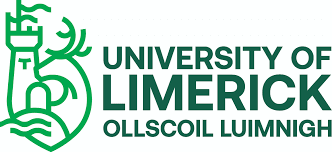BSc (with Honors) in Mathematics and Physics
Key Points
Have you ever wondered
- Why is it so difficult to predict the weather?
- What do stock markets and earthquakes have in common?
- How can matter be a wave on atomic scales?
- How can wave mechanics produce the next generation of computers?
- How do you model the Universe on a computer?
- How does the spread of a disease explain the formation of stars?
All these questions have something in common; can be answered in the interface of mathematics and physics. Understanding both subjects equally allows a unique view of the world that allows you to capture and analyze its true complexity in an elegant way; It allows you to explain it, see effects not yet detected or realized, and even predict how it will behave. You should be comfortable with math and have an innate curiosity about how the world works. You should also be interested in applying your math and physics skills to understanding and solving real-world problems.
Program description
This full-time program lasts four years. The first two years are a combination of core modules taken in both the BA in Mathematical Sciences and the BA in Applied Physics at UL.
In these first two years the fundamental aspects of physics and mathematics are established. Physical subjects will include topics such as Mechanics, Waves, Light, Thermal Physics, Electromagnetism, and Modern Physics, covering the scope of current basic understanding in physics. Also, the most widely applied topics are optics and semiconductors, which are essential to modern technology.
During the spring semester of your junior year, a period of cooperative education (industry placement) gives you hands-on experience in a relevant work environment. It is organized by the University Cooperative Education Department in collaboration with representatives from various industries, both in Ireland and abroad. Students are interviewed by company representatives. Upon selection, they are offered full-time employment during the Cooperative Education period and paid at a competitive rate.
During the last year a project has been carried out that allows an in-depth analysis of a specific problem. This also provides students interested in graduate research with the opportunity to conduct exploratory investigation of a potential research topic.
Program structure
Employability skills of this grade
- Design and conduct observational and experimental studies.
- Analyze and interpret data, find patterns and draw conclusions.
- Deal with abstract concepts.
- Present mathematical arguments and conclusions with precision and clarity.
- Advanced arithmetic and analysis of large amounts of data.
- Logical thinking.
- Arithmetic: mathematical modeling, interpretation and presentation of information graphically, and use of mathematics to find solutions to scientific problems .
- IT skills, including specialized software packages and some programming.
- Attention to detail.
- Communication: convey complex ideas and use technical language correctly.
Admission requirements
- Applicants will require a baccalaureate degree officially translated into English.
- IELTS 6.0 or higher (or its internationally recognized equivalent).
- TOEFL 580 (on paper) or 90 (on the internet).
- UL has approved the use of the Duolingo English Test (DET) as a temporary measure for the 2021/2 admission (due at the closing of the exam centers). The minimum requirement will be a DET score of 110. An interview may be required in conjunction with this for certain programs.
Applicants must possess at the time of enrollment the established Certificate of Completion (or an approved equivalent) with a minimum of six subjects that must include: two H5 grades (higher level ) and four O6 (ordinary level) or four H7 (upper level) Level) grades. Subjects must include Math, Irish or another language.
In addition, applicants must have a minimum grade of O3 / H7 in Mathematics and a grade of H4 in any of the following: Agricultural Science, Applied Mathematics, Biology, Chemistry, Physics , Physics with Chemistry.
Learn more about our educational offer
Request your quote
An advisor will contact you by phone and email within the following hours

